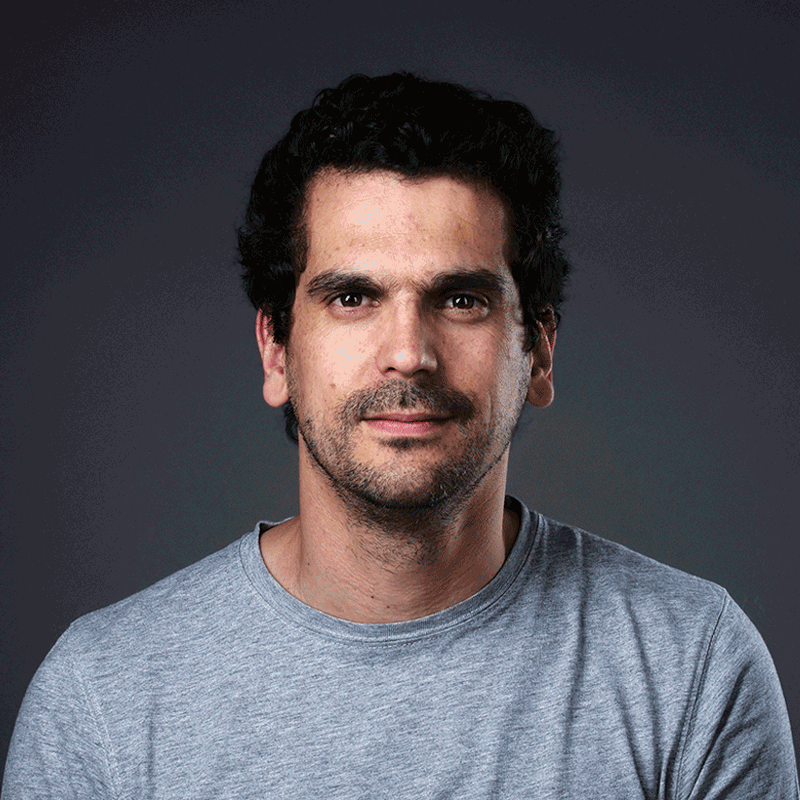ERC Starting Grants are among Europe’s most competitive research awards. They are designed to support promising early-career researchers with the potential to transform their fields, providing the resources needed to establish independent teams and pursue ambitious research programmes.
For 2025, the ERC Scientific Council earmarked a budget of €761 million to support 478 Starting Grants across disciplines. In the Life Sciences alone, 137 proposals were selected for funding from a total of 1099 applications.
To be competitive, applicants must not only present an innovative and feasible scientific proposal, but also demonstrate clear signs of independence and maturity, for example, by publishing significant work as lead author or without the involvement of their PhD supervisor.
Joaquim Alves Da Silva, Champalimaud Foundation
Project title: Disentangling Self-Paced from Cued Action Initiation in the Motor Thalamus (DisSeCT)
Every day we make countless decisions about when to move. Sometimes our actions are prompted by external cues – like standing up when someone knocks at the door – while at other times the same action arises from an internal decision, such as getting up simply because you want a cup of coffee.
In Parkinson’s disease, a condition that impairs movement initiation, this distinction becomes striking: self-initiated movements are more severely affected than those triggered by external signals. This suggests that external triggers can somehow bypass the perturbed brain circuits in Parkinson’s disease, enabling patients to move better. Despite this intriguing observation, it is still unclear what exactly is different in neural circuits when movement is self-initiated versus externally triggered.
“With ERC support, we will investigate how brain circuits function when actions are internally generated compared with when they are driven by external cues”, says Alves da Silva. “Using advanced tools to trace and record activity in specific neural pathways, we will compare motor control circuits that are more strongly affected by Parkinson’s disease with those that are less affected, and examine their roles in cued versus self-initiated movement”.
“Ultimately, this project aims to reveal how the brain controls different forms of movement initiation, while at the same time providing a framework to understand why patients with Parkinson’s disease often move more easily when responding to external prompts”.
Bio
Joaquim Alves da Silva is Group Leader of the Neural Circuits Dysfunction Group at the Champalimaud Research Programme and Associate Professor at Nova Medical School. A psychiatrist by training, he completed his PhD at CF under the guidance of the neuroscientist Rui Costa, investigating how dopamine neurons contribute to movement initiation using a combination of electrophysiology, calcium imaging, and optogenetics.
In his postdoctoral research, he explored how the brain and body communicate after eating, focusing on how dopamine neurons respond to calorie detection and how this process is shaped by the vagus nerve. His lab now applies systems neuroscience approaches to study how circuit dysfunction leads to movement disorders such as Parkinson’s disease and dystonia.
Marko Šestan, University of Rijeka
Project title: Every Smell You Take – Smell-Induced Conditioning of the Immune System During Infections (MemoSniff)
Our actions are deeply shaped by past experiences. Painful events make us cautious, while successes build confidence – processes of learning and adaptation collectively known as behavioural conditioning. This principle was famously demonstrated by Ivan Pavlov, who showed that dogs could be trained to associate the sound of a bell with food, eventually salivating at the sound alone.
Over the past century, research has revealed that conditioning influences not only behaviour but also physiological responses, including those of the immune system. Yet a crucial question remains unanswered: can conditioning the immune system actually improve the body’s defences when it encounters the same pathogen again?
“This ERC funding will support the launch of a bold, interdisciplinary project to investigate how neuro-immune circuits shape immune responses through behavioural conditioning”, says Šestan. “By combining state-of-the-art tools from neuroscience and immunology, we aim to uncover new mechanisms of immune regulation that have so far remained largely unexplored”.
“Given the growing limitations of current antiviral therapies and the alarming rise in antibiotic resistance, there is an urgent need for transformative approaches to infectious disease control. This award will enable us to explore whether targeted activation of neuro-immune pathways can suppress pathogen replication and boost vaccine efficacy – potentially redefining how we prevent and manage infections”.
“The ERC grant will provide not only the resources to establish a dedicated research team and infrastructure, but also the intellectual freedom to pursue high-risk, high-reward science that could open entirely new frontiers in immune conditioning and disease prevention”.
Bio
Marko Šestan began his academic journey in veterinary medicine at the University of Zagreb before earning a PhD in immunology at the University of Rijeka, where he specialised in immunometabolism. As a postdoctoral researcher at CF, he worked in the Veiga-Fernandes Lab, studying the intricate connections between the nervous and immune systems. He has since returned to the Faculty of Medicine in Rijeka, where he will lead his ERC-funded project on neuro-immune regulation and infectious disease prevention.

